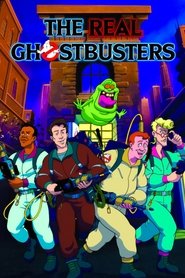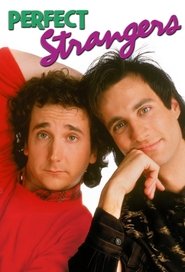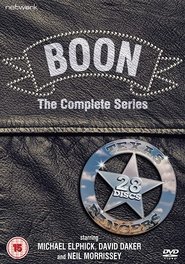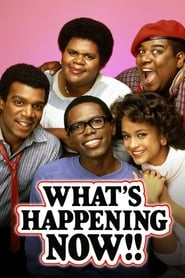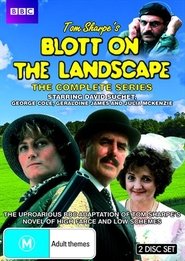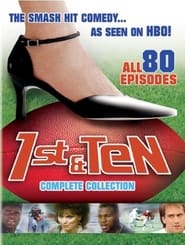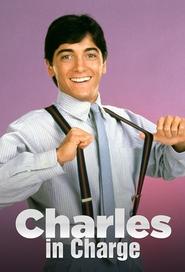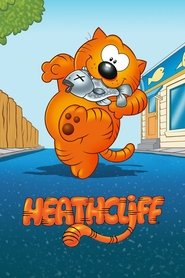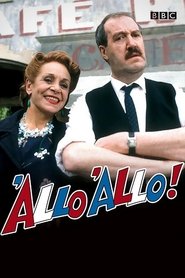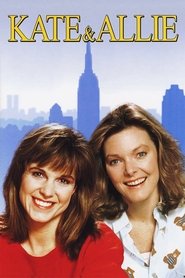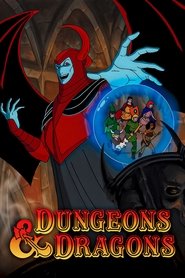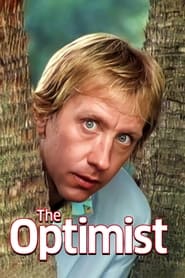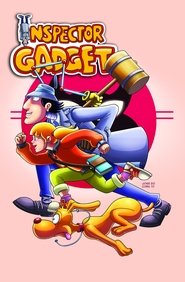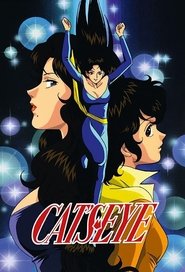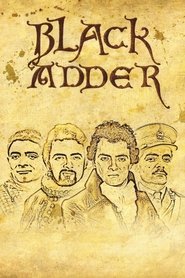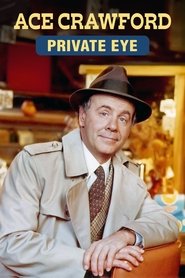New Comedy TV Series on The Roku Channel - Page 33
-
The Real Ghostbusters
1986
star 7.7The continuing adventures of paranormal investigators Dr. Peter Venkman, Dr. Egon Spengler, Dr. Ray Stantz, Winston Zeddemore, their secretary Janine Melnitz and their mascot ghost Slimer. -
Pingu
1986
Pingu
1986
star 6.9Playful penguin Pingu lives with his family in Antarctica, where he often finds himself caught up in mischievous high jinks with his pal Robby. -
Perfect Strangers
1986
Perfect Strangers
1986
star 6.7The chronicles of the rocky coexistence of midwestern American Larry Appleton and his distant cousin from eastern Mediterranean Europe, Balki Bartokomous. -
The Redd Foxx Show
1986
The Redd Foxx Show
1986
star 5The Redd Foxx Show is a short-lived sitcom that premiered January 18, 1986 on ABC. The show ended after four months on air, due in part to a Saturday night timeslot. -
Boon
1986
Boon
1986
star 5.5Boon is a British television drama and modern-day western series starring Michael Elphick, David Daker, and later Neil Morrissey. It was created by Jim Hill and Bill Stair and filmed by Central Television for ITV. It revolved around the life of a modern-day Lone Ranger and ex-firefighter, Ken Boon. -
What's Happening Now!!
1985
star 6.3What's Happening Now!! is an American sequel series of What's Happening!! It ran in syndication from 1985 to 1988. Like the previous series, What's Happening Now!! is loosely based on the motion picture Cooley High. -
Blott on the Landscape
1985
star 7.5A thwarted Lady Maud runs off to her solicitor to start divorce proceedings and that gives Sir Giles his bright idea-why not run the proposed bypass for the area through their very own Cleene Gorge, thereby wrecking Lady Maud's ancestral home and copping rather a lot of compensation from the government to boot? Witness the frolics of the bumbling dundridge - the Y-front clad man from the ministry, Sir Giles' versatile Mrs Forthby - Mediterranean harlot and naughty schoolgirl extraordinaire, not forgetting Blott himself, gardener and mystery man, casting his enigmatic eye over the eccentricities of the great British aristocracy... Starring, George Cole, Geraldine James, David Suchet, Simon Cadell and Julia McKenzie -
The Pickwick Papers
1985
The Pickwick Papers
1985
star 6.3Mr Pickwick, Tupman, Winkle, Snodgrass and Sam Weller begin their travels through the England of stage-coaches and coaching inns. -
1st & Ten
1984
1st & Ten
1984
star 5.91st & Ten is an American situation comedy that aired between December 1984 and January 1991 on the cable television network HBO. Featuring series regulars Delta Burke and veteran Reid Shelton, it was one of cable's first attempts to lure the lucrative sit-com audience away from the "Big Three", by taking advantage of their freedom to include occasional cursing and nudity. -
Charles in Charge
1984
Charles in Charge
1984
star 6.1Charles, a 19-year-old student at the fictional Copeland College in New Brunswick, New Jersey, works as a live-in babysitter in exchange for room and board. -
Heathcliff and the Catillac Cats
1984
star 6.4Heathcliff knows he is the best cat around! Never have we seen such self-confidence topped off with a heavy dose of vanity, cunning, ruthlessness, and a mischievous love of gags. He cruises and struts down the street and watch out any person, cat, or dog who gets in his way! Although he may terrorize the neighborhood, let an outsider try to push anyone around and he is a veritable tiger of defense. On the other side of town are The Catillac Cats, which typically revolve around leader Riff-Raff's get-rich-quick schemes or searches for food. -
'Allo 'Allo!
1984
'Allo 'Allo!
1984
star 7.8The misadventures of hapless cafe owner René Artois and his escapades with the Resistance in occupied France. -
Kate & Allie
1984
Kate & Allie
1984
star 5.9Kate & Allie is an American television situation comedy which ran from March 19, 1984, to May 22, 1989. Kate & Allie first aired on CBS as a midseason replacement series and only six episodes were initially commissioned, but the favorable response from critics and viewers alike easily convinced CBS to commit to a full season in the fall of 1984. The series was created by Sherry Coben. -
Dungeons & Dragons
1983
Dungeons & Dragons
1983
star 7.9Six friends are transported into the Dungeons & Dragons realm and must try to find a way home with the help of their guide 'Dungeon Master'. -
The Optimist
1983
The Optimist
1983
star 7Meet The Optimist. A guy who has big dreams in life yet creates problems and confusion wherever he goes. He means well, but in this dialogue-free comedy series he manages to leave a trail of chaos across Hollywood and London. -
Inspector Gadget
1983
Inspector Gadget
1983
star 6.9Inspector Gadget is a clumsy, dim-witted human cyborg detective with various bionic gadgets built into his body. Gadget stumbles around working the cases while his niece and dog do most of the investigating. Gadget's arch-nemesis is Dr. Claw, the leader of an evil organisation, known as "M.A.D." -
Cat's Eye
1983
Cat's Eye
1983
star 6.9Cat's Eye is the most notorious group of art thieves in Japan. No one knows their identities, but for most of Tokyo, the mystery only heightens their allure. -
Blackadder
1983
Blackadder
1983
star 8Black Adder traces the deeply cynical and self-serving lineage of various Edmund Blackadders throughout British history, from the muck of the Middle Ages to the frontline of the First World War. -
Ace Crawford, Private Eye
1983
star 6Ace Crawford, Private Eye is an American sitcom that aired on CBS from March to April 1983. The series parodied the “hard-boiled detective” genre. -
Tucker's Witch
1982
Tucker's Witch
1982
star 4Rick and Amanda Tucker own and operate their private detective agency in Laurel Canyon in Los Angeles. Amanda's psychic powers become an asset in solving cases but also tend to get the spouses into various troubles.
 Netflix
Netflix
 Amazon Prime Video
Amazon Prime Video
 Apple iTunes
Apple iTunes
 Apple TV Plus
Apple TV Plus
 Disney Plus
Disney Plus
 Google Play Movies
Google Play Movies
 Paramount Plus
Paramount Plus
 Hulu
Hulu
 HBO Max
HBO Max
 YouTube
YouTube
 fuboTV
fuboTV
 Peacock
Peacock
 Peacock Premium
Peacock Premium
 Amazon Video
Amazon Video
 The Roku Channel
The Roku Channel
 AMC+
AMC+
 Kocowa
Kocowa
 Hoopla
Hoopla
 The CW
The CW
 Vudu
Vudu
 Starz
Starz
 Showtime
Showtime
 PBS
PBS
 Pantaflix
Pantaflix
 FXNow
FXNow
 Tubi TV
Tubi TV
 Kanopy
Kanopy
 Comedy Central
Comedy Central
 Crunchyroll
Crunchyroll
 Microsoft Store
Microsoft Store
 Redbox
Redbox
 Sun Nxt
Sun Nxt
 ABC
ABC
 DIRECTV
DIRECTV
 Crackle
Crackle
 Fandor
Fandor
 Plex
Plex
